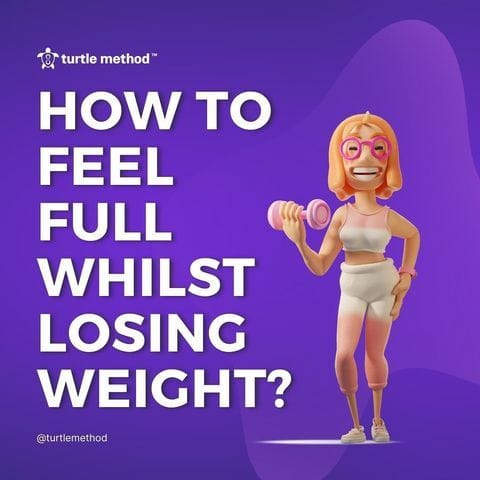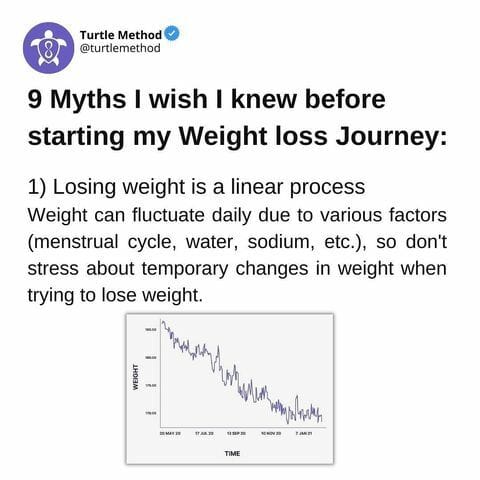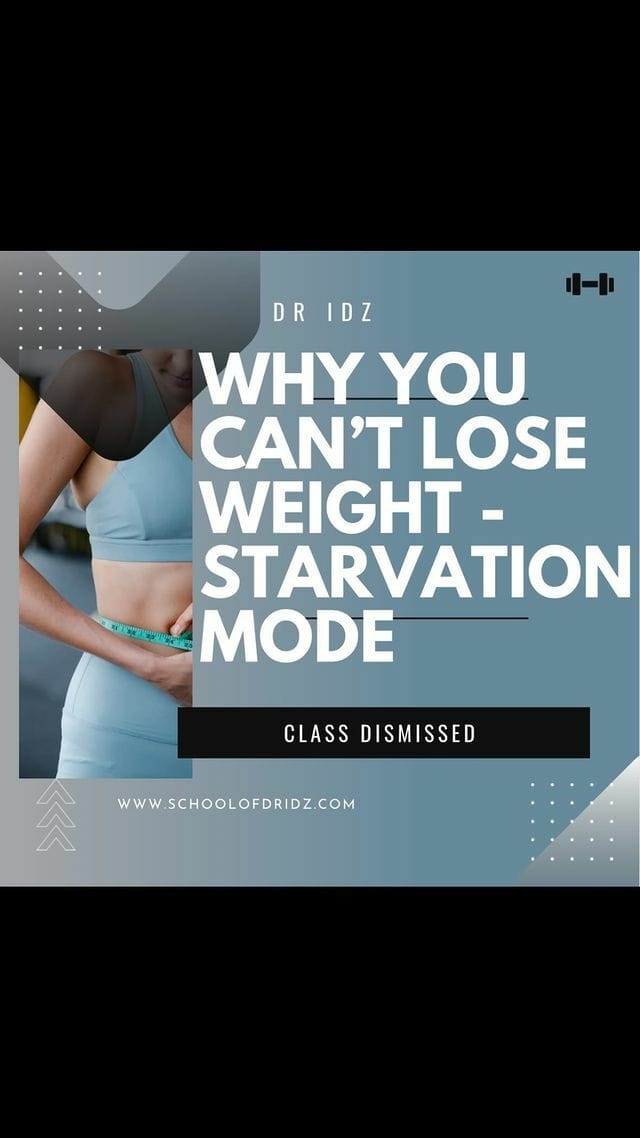- Women's Research Review
- Posts
- Research Review #2
Research Review #2
We’re back with edition 2!
Some interesting stuff today, let’s get straight to it.
Research 1 - Weight loss barriers & how you see “weight” vs men
A 2020 study conducted an online survey involving 429 women about women’s barriers to weight loss, and their opinions of diet strategies
Exercising was the most tried method of weight loss over other diet strategies (71%)
Weight loss support by a dietician was appealing as individual appointments (65%) or an online program (54%)
Most women (73%) had heard of the “5:2 diet”, but only 12% had tried it. Open comments revealed mixed views of the 5:2 diet.
Do Different Genders Struggle with Their Weight Differently?
There are no shortage of reasons why so many of us struggle with our weight, whether because of our health, images and portrayals in the media, comparing ourselves to airbrushed celebrities, or outside comments made by friends and family.
But do these things, along with slimming/diet culture and high beauty standards, affect women more than men? Or are the effects of these more evenly spread over the two sexes? This is what the results of an online survey showed:
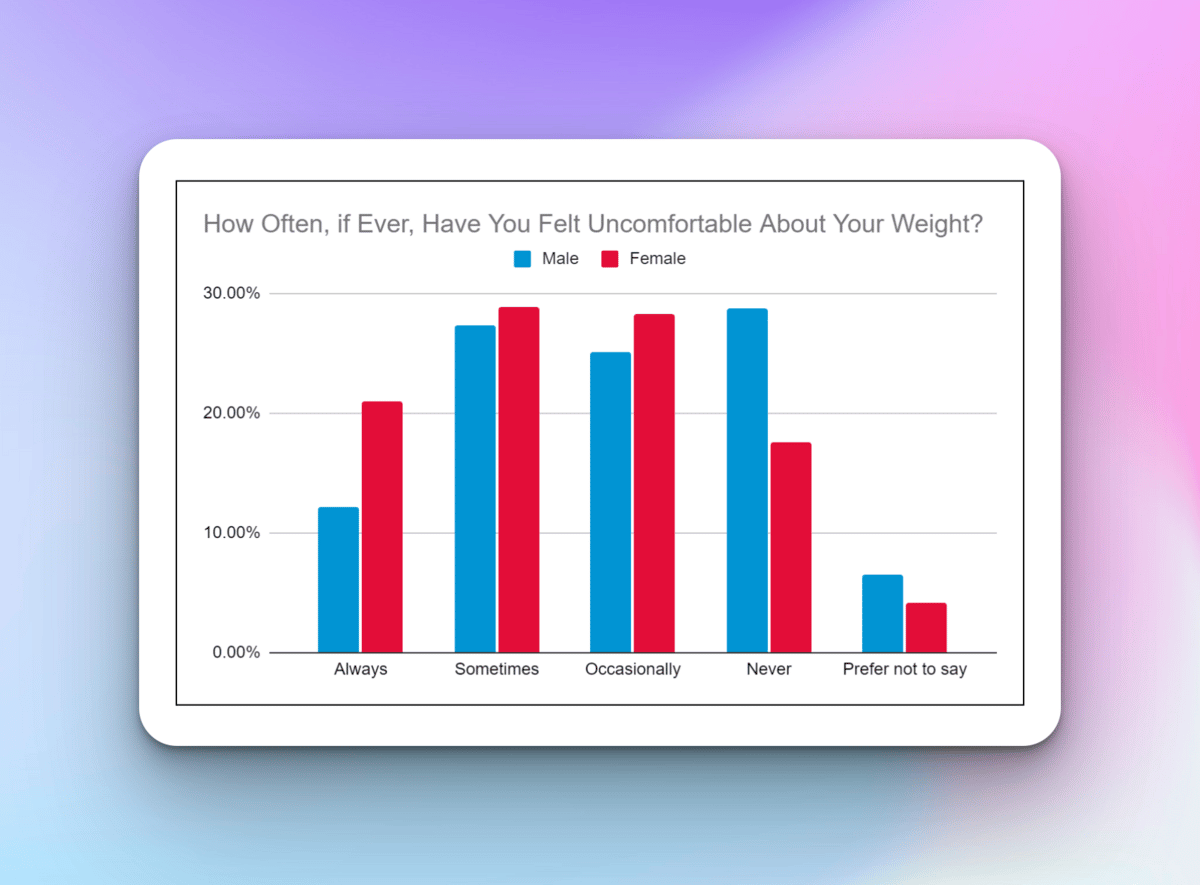
78.22% of women say they feel uncomfortable about their weight some or all of the time.
64.68% of men have said they feel uncomfortable about their weight some or all of the time.
Almost 30% (28.77%) of men said they never felt uncomfortable with their weight, as opposed to nearly half as many women (17.58%) giving this answer.
Only 12.20% of men said they always felt uncomfortable with their weight, while almost twice as many women (21%) gave this answer.
Source: Weight loss statistics 2021 - Facts & Figures in the UK. Pharmacy Direct GB.
These stats are important because they show diet culture conditioning and expectations re stronger in women, making the whole weight loss journey even more stressful.
Research published in Psychology Today back in 2007 (when we had less exposure to 24/7 media) showed that even if we didn’t pay attention, reading just 2 tabloid articles within 17 months was enough to completely change someone’s opinion on how to lose weight!
So you may not have free will at all, you’re the product of what you expose yourself to.
Stay on guard!
Research #2 - Should you train differently at different parts of your menstrual cycle?
Let’s take a look at the research:
There is some evidence to suggest that women may perform differently during different phases of their menstrual cycle due to fluctuations in hormones like estrogen and progesterone. Here are some of the potential differences:
Strength: A study published in the Journal of Strength and Conditioning Research in 2010 found that women had greater muscular strength during the follicular phase of their menstrual cycle (the phase leading up to ovulation) compared to the luteal phase (the phase after ovulation). The authors suggested that this may be due to higher levels of estrogen during the follicular phase.
Endurance: A study published in the European Journal of Applied Physiology in 2007 found that women had greater endurance during the follicular phase of their menstrual cycle compared to the luteal phase. The authors suggested that this may be due to lower levels of progesterone during the follicular phase.
Reaction time: A study published in the Journal of Sports Science and Medicine in 2012 found that women had faster reaction times during the follicular phase of their menstrual cycle compared to the luteal phase. The authors suggested that this may be due to higher levels of estrogen during the follicular phase.
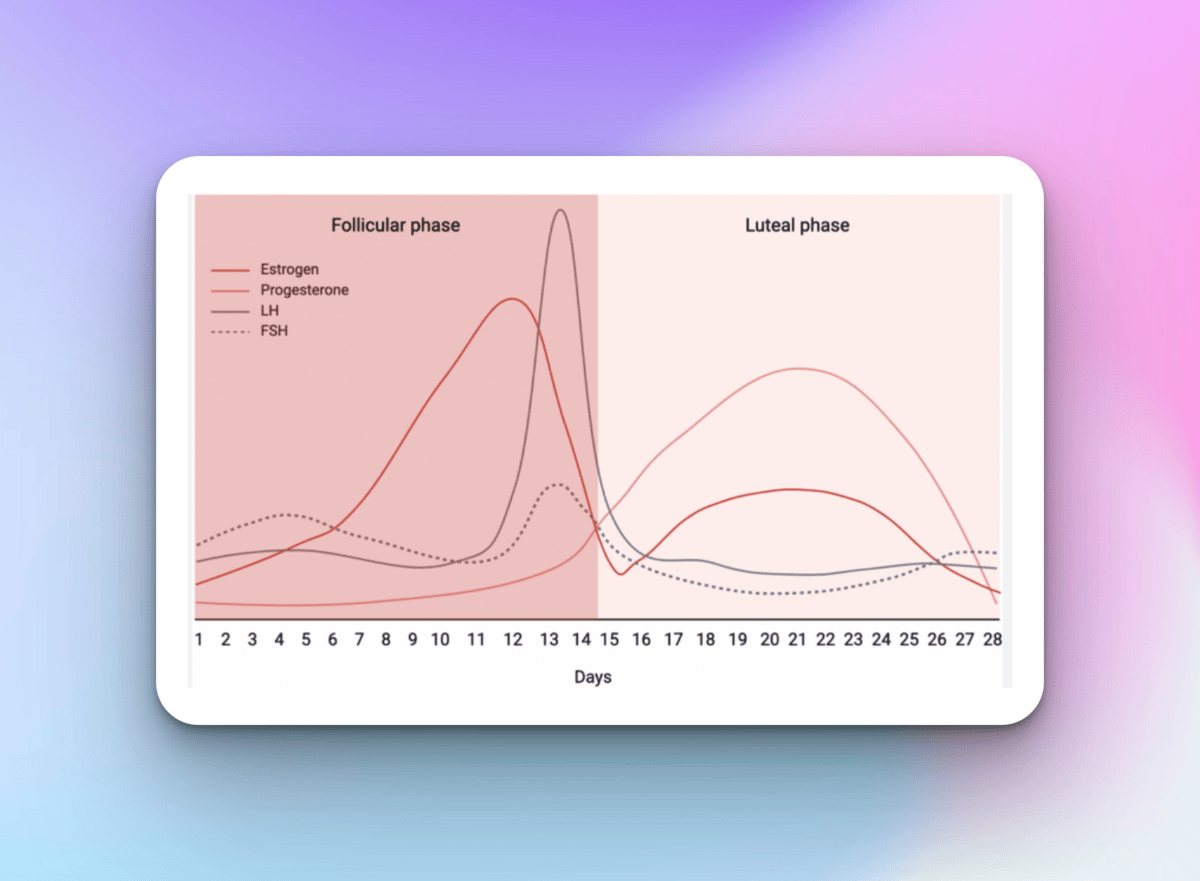
One way to find out is to do the same training every week for 2 cycles and track how you feel during the workouts, your sleep, energy levels etc.
It may then be worth programming in your PB days or push yourself harder in the first 14 days of your cycle. Or this could mean Day 5 (post period) to day 14/15.
But, everyone may be different here. Don’t take these takeaways as gospel and don’t get stressed about trying to perfectly train.
What matters is we turn up most of the time and give it a good go.
Research #3 Women’s weight gain patterns over a lifetime
Early adulthood: Women typically gain weight in early adulthood, with the average weight gain ranging from 7 to 15 pounds (3 to 7 kg) during the first 10 years after secondary school (16-26 years old). According to a study published in the American Journal of Preventive Medicine, women who attended University gained more weight than those who did not.
Middle adulthood: Women may experience more significant weight gain during middle adulthood, with the average weight gain ranging from 10 to 20 pounds (4.5 to 9 kg) between the ages of 40 and 60. A study published in the Journal of Women's Health found that women who experienced menopause gained an average of 12.5 pounds (5.7 kg) over a 3-year period.
Late adulthood: Weight gain tends to slow down or stabilize in late adulthood, but the risk of obesity-related health problems may increase. According to a study published in the Journal of Gerontology, women in their 70s and 80s who were overweight or obese had a higher risk of functional decline and disability than those who were at a healthy weight.
And as children?
According to a study published in the New England Journal of Medicine, about 60% of children who were overweight at age 5 were still overweight at age 35, and about 80% of obese teenagers will become obese adults.
Another study published in the Journal of Pediatrics found that 53% of girls who were obese at age 7 remained obese at age 13.
These are shocking numbers.
So what do we take from this?
If you’re a parent, it’s important to feed your child nutrient dense, high volume foods and make sure they take part in physical activity. If a child is obese and is obese as a teen, the chances are they will be obese in adulthood.
Most weight gain is seen between age 30-45 years old. So in this time frame it’s even more important to ensure you’re getting your steps in, learning about your intake, understanding your eating habits and developing a healthy relationship with food.
Not only is the age 30-45 the age where women gain most weight, it’s typically the age range families raise kids in (if having a child is what is desired, not everyone does of course).
If you were 20 having children they’d be 10 by the time you get into the “danger zone” of 30-45. If you are 35 having a child for the first time you’ve got their first 10 years in that zone.
So there’s a boosted motivation there to ensure healthy eating habits are done in the household so that the children pick up on them.
Your “why” shouldn’t be just to look better, it should be to become a great example for your friends, family and those around you.
Becoming mini-leaders in our groups is one of the best things we can do to show we love those around us. People tend to imitate especially when they see the progress radiating through.
That’s a wrap on the research today.
Now it’s time for some Instagram posts of the week!
Instagram posts of the week
The Dr Idz one above DEBUNKS starvation mode, just to clarify!
If you enjoy this newsletter and think someone else will too, please consider sharing it by using your share link below :)
